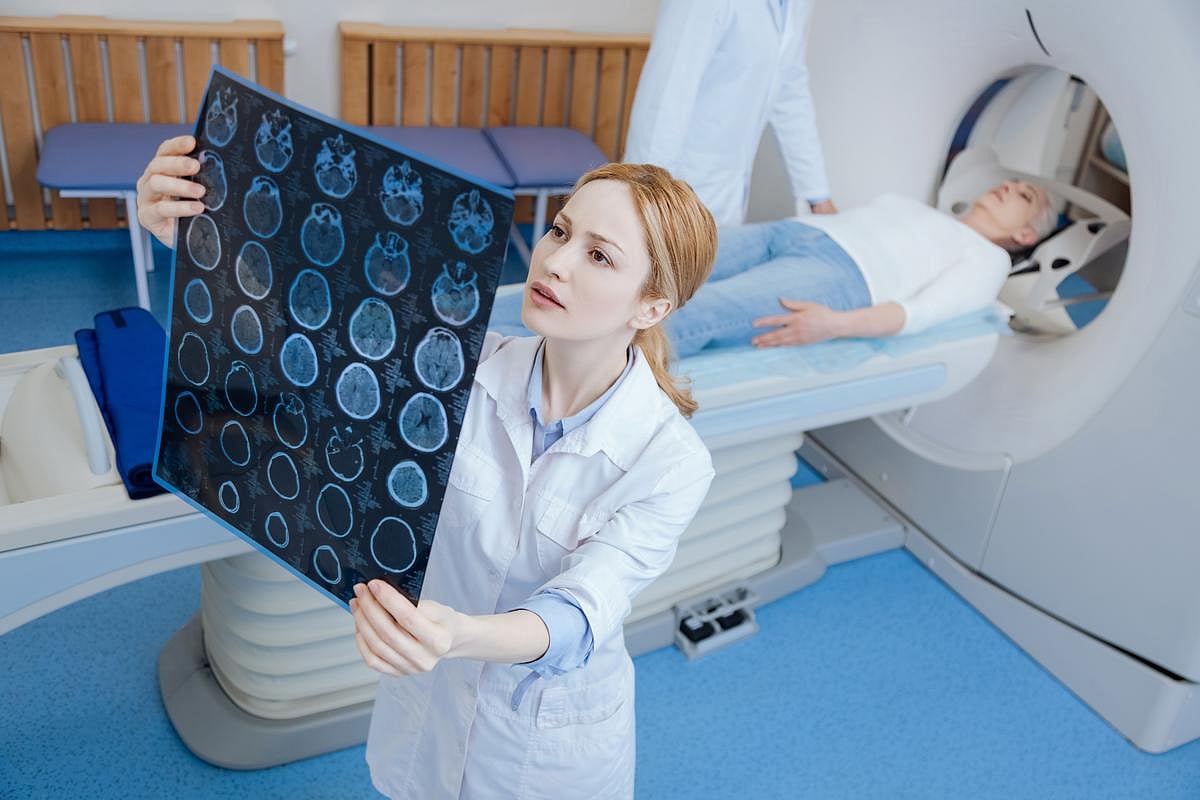Get Healthy!

- Dennis Thompson
- Posted April 16, 2025
CT Scans Can Increase Your Cancer Risk
Considering a trendy whole-body CT scan after hearing celebrities like Kim Kardashian, Paris Hilton and Jason Bateman tout their benefits?
Weigh the cancer risk from the scan’s radiation before making an appointment, a new study warns.
CT scan radiation is expected to cause about 103,000 future cancers among the 61.5 million people who received a CT in 2023, researchers reported April 14 in JAMA Internal Medicine.
In fact, if current imaging practices persist, CT scans might eventually account for 5% of new cancer diagnoses annually, researchers said.
“CT can save lives, but its potential harms are often overlooked,” lead researcher Dr. Rebecca Smith-Bindman, a radiologist and professor of epidemiology at the University of California-San Francisco, said in a news release.
“Our estimates put CT on par with other significant risk factors, such as alcohol consumption and excess body weight,” she continued. “Reducing the number of scans and reducing doses per scan would save lives.”
Alcohol currently accounts for more than 5% of cancers, while excess weight accounts for nearly 8%, researchers said.
In CT scans, people lie on a table while an X-ray tube rotates around them, capturing a series of images that computers can assemble into a 3D image of their internal structure.
The process exposes the body to a much heavier dose of radiation than a normal X-ray – about 10 millisieverts of radiation versus 0.1 millisieverts during a single exam, according to the American Cancer Society.
By comparison, the average American is exposed to about 3 millisieverts of radiation from natural sources over the course of a whole year, the ACS says.
For the new study, researchers projected how many cancers could crop up from the 93 million CT scans that were performed on 61.5 million people in 2023.
The largest number of cancers are projected to result from abdominal or pelvic CT scans in adults, accounting for about 37,500 of the 103,000 expected cancers, results show.
Chest CT scans account for another 21,500 cancers, researchers said.
Children and teenagers have a higher risk of developing cancer from CT scan radiation, but adults account for 90% of projected cancer cases because they use the scans more often, the study says.
Lung cancer is projected to be the most common radiation-induced cancer, accounting for 22,400 cases. Colon cancer was the next most common, with 8,700 cases, results show.
“It is unclear whether the current, unexplained increase in these two cancers as well as others at unexpectedly younger ages may be partly due to CT,” researchers wrote.
Other CT-related cancers included leukemia (7,900 cases) and bladder cancer (7,100), researchers said.
Among women, breast cancers were the second-most common CT-related cancer, with 5,700 projected cases.
These new projections are three to four times higher than earlier estimates of CT-radiation-induced cancer cases, researchers noted.
That’s partly because CT scans are in greater use, they said.
“CT use is 30% higher today than in 2007, due to growth in low-value, potentially unnecessary imaging as well as population aging,” the study says.
The new projections also accounted for the higher radiation dose caused by multiphase scanning, which occurs in more than 28% of all CT scans. In that procedure, people are scanned two or three times during a single session to pinpoint or track health problems.
These results are sobering, given how “CT is now inextricably woven into the fabric of modern medicine,” says an accompanying editorial written by two editors of JAMA Internal Medicine.
In the 1980s, about 3 million CT scans a year were performed, compared with the 93 million scans in 2023 that form the basis of the new study, noted editorial co-author Dr. Ilana Richman, an assistant professor at Yale School of Medicine in New Haven, Conn.
“CT has become essential to the diagnostic process for many serious conditions, from trauma to cancer,” the editorial says. “Emergency departments and hospitals have come to rely on prompt and accurate diagnosis for efficient patient flow and management. Patients likewise expect timely and accurate diagnoses.”
Doctors need to be more judicious in ordering CT scans, and patients should ask questions and take steps to avoid being subjected to unnecessary CT, Smith-Bindman said.
“Most patients will not develop cancer from a CT scan,” she told KQED, a public TV and radio station in San Francisco. “But if you’re not getting any benefit, then even a small risk is unacceptable.”
More information
The American Cancer Society has more on the radiation risk from imaging scans.
SOURCES: JAMA Internal Medicine, April 14, 2025; KQED, April 14, 2025



